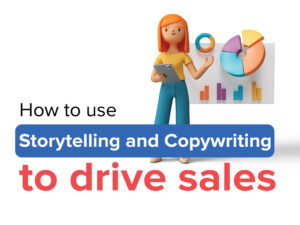- The Power of Storytelling in Marketing Strategies
- The Benefits of Storytelling in Increasing Conversion Rates.
- Storytelling Marketing in the Age of Social Media
- How Emotions Play A Role in Storytelling Marketing
- The Importance of Authenticity in Brand Storytelling
- How Storytelling Marketing Can Improve Customer Engagement
- Measuring the Success of a Storytelling Marketing Campaign
- Conclusion
In the world of marketing, storytelling has become an essential tool to create a strong brand identity and connect with customers on a deeper level. Storytelling is the art of creating narratives that capture the imagination of the target audience, stirring emotions and encouraging engagement. Brands are no longer relying solely on advertisements to capture the attention of consumers; rather, they are using a more powerful and effective way of communicating their messages to the world through a story. In this blog post, we are going to explore why brands should adopt storytelling marketing, and how emotions and authenticity play a significant role in the process.
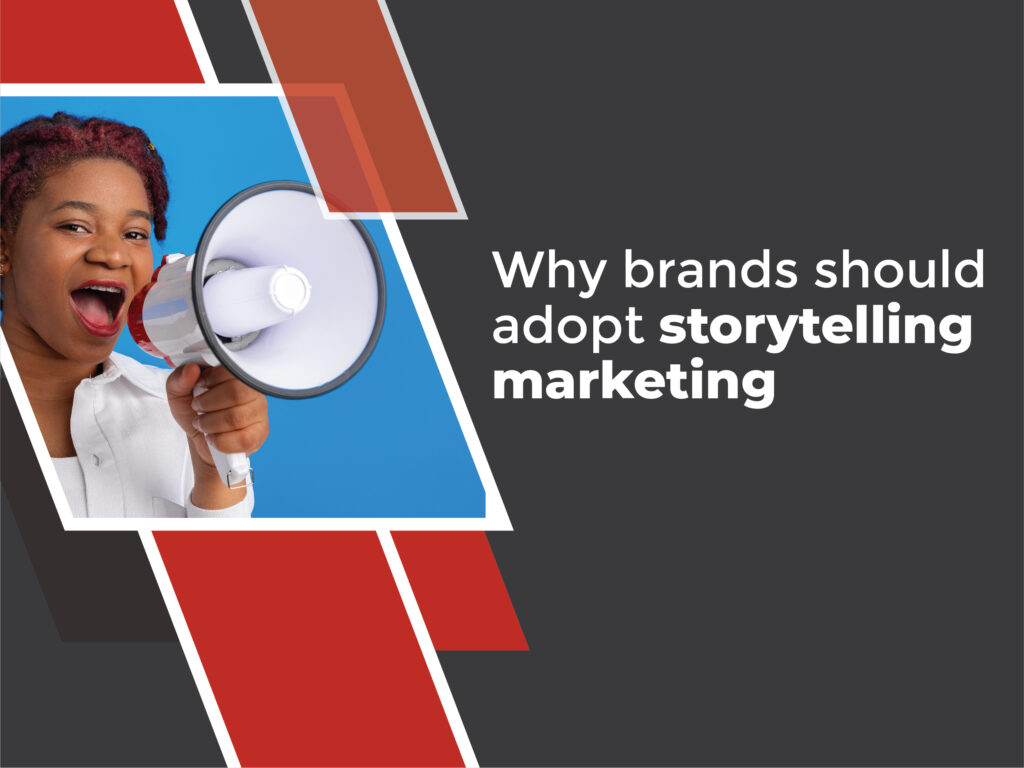
Why Storytelling Marketing?
Storytelling marketing is an innovative marketing technique of expressing brand messages and information through storytelling techniques. It’s a way to create experiences, establish value, and evoke emotions among the target audience. Instead of trying to sell a product, storytelling helps brands connect with consumers on a personal level and establish an emotional connection with them. Here are some reasons why storytelling marketing has become crucial in the modern-day marketing world.
- It’s Convincing
Storytelling is a powerful way of convincing the target audience. Customers can quickly identify with stories rather than with product features. By creating an emotional bond with the audience, brands can convince them to buy their products. As a result, brands can generate more meaningful engagement with their customers, leading to increased loyalty and revenue.
- It’s Memorable
People tend to remember stories that evoke emotions better than simple product-related messages. A product message may be forgotten in a week or two, but a well-crafted story can stay in a customer’s memory for a more extended period. By using narratives, brands can make sure that their message remains etched in the customer’s mind, leading to long-term customer retention and loyalty.
- It’s Shareable
Storytelling is easily shareable. People connect with others through stories and are likely to share them with family, friends, and colleagues. Brands can leverage this by creating stories that are easy to share, interesting, and informative. This can help increase a brand’s reach, boost engagement with customers, and generate positive word-of-mouth.
- It Differentiates Brands
In a crowded marketplace, storytelling marketing can help differentiate brands. By crafting a unique story, brands can stand out from the competition and grab the attention of customers. It’s an effective way of creating a brand identity that customers can connect to emotionally, leading to long-term engagement, loyalty, and advocacy.
The Power of Storytelling in Marketing Strategies

The key to successful marketing is to find a way to connect with a target audience and generate brand loyalty. This is where storytelling comes in. A well-told story has the ability to engage individuals emotionally, evoke empathy and create a long-lasting connection. Consumers are more likely to trust and remember your brand when you tell them a story that is worth listening to.
Storytelling marketing strategy involves story creation surrounding the brand’s vision, values, and beliefs. It can create a unique identity for the brand which can stand out from the competition, increase brand recognition, and connect with your target audience. By humanizing the brand and giving it a relatable personality through storytelling, it humanizes the brand which evokes trust, and brand loyalty.
More than just ads and slogans, effective marketing storytelling should be a genuine and authentic account of what your brand stands for and how it came to be. A great example of how storytelling marketing has helped a brand connect with its audience is Nike. Nike used storytelling marketing to great effect by creating an emotional connection around their brand with Colin Kaepernick’s powerful ads kneeling in protest. It was a movement showing Nike’s branding was more than just shoes it signified deeper beliefs and moral convictions surrounding human rights, justice and freedom.
The Benefits of Storytelling in Increasing Conversion Rates.

Effective storytelling marketing is highly effective in driving engagement and improving conversion rates. By telling a story that connects with your audience, you are more likely to gain their attention and captivate them with your message. In this way, storytelling marketing can help humanize the brand’s identity, differentiate it from other brands, and create better customer experiences. It highlights the brand’s personality and ensures the customers feel they are investing their money in something trustworthy and relatable.
Well thought-out storytelling has the potential to turn potential customers into permanent ones. It can help consumers realize the positive impact of the brand. Consumers feel more inclined to support a brand that is driven by a genuine purpose rather than just profits.
Storytelling also helps brands establish an emotional connection between the brand and the customers. People are more likely to remember stories and remember messages conveyed through them. This is why storytelling is more effective than hard-sell tactics in marketing.
A study by Stanford University confirmed the powerful processing of storytelling, discovering that stories are up to 22 times more memorable than facts and figures alone. And the truth is, it is the emotional connection that leads to the action of conversion.
Storytelling Marketing in the Age of Social Media
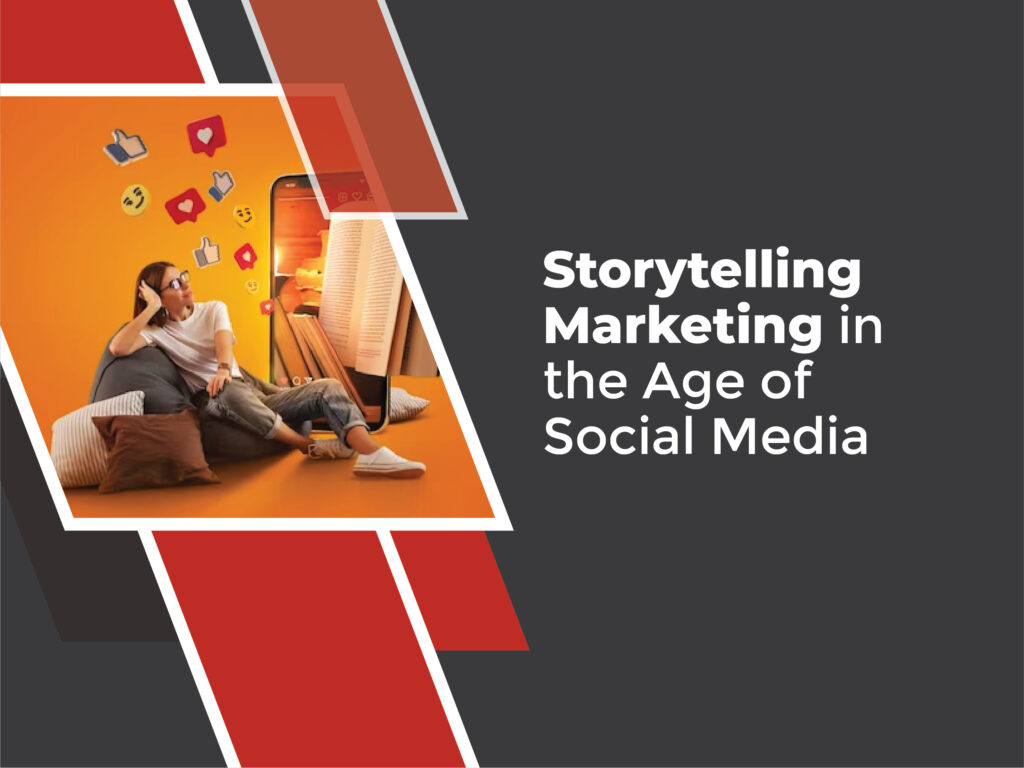
The rise of social media has made storytelling marketing even more important. Social media has become the primary platform for customer engagement and is where most brands conduct their marketing efforts. With the progression of social media’s video content and other features, there has never been a better time to adopt storytelling marketing strategy.
Storytelling on social media offers unique opportunities for customers to get to know a brand better on a personal level. Through social media platforms such as Facebook, Instagram, Twitter, and YouTube, customers can follow brand stories, their values, and their beliefs, which creates a feeling of connection, thus encourage brand loyalty.
One brand that leverages social media, using storytelling marketing to great effect is GoPro. GoPro has not only made a name for itself by selling quality cameras but created a community on Instagram through sharing the adventures and experiences created by GoPro users. This puts the customer first and by showcasing their unique adventures, GoPro sticks out as a brand that encourages individual values, aspirations, and beliefs. In fact, GoPro’s storytelling marketing strategy is so effective it’s global. Anyone can share their adventures and by using the hashtag #GoPro to win prizes.
How Emotions Play A Role in Storytelling Marketing
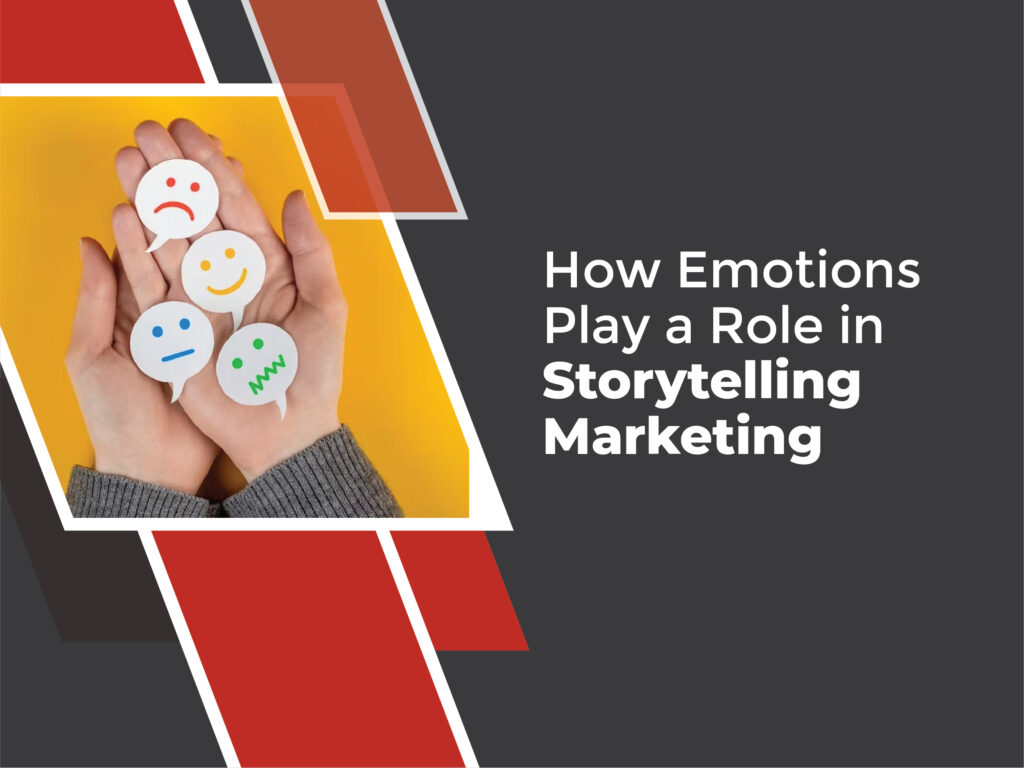
Emotions play a significant role in storytelling marketing. By using emotional triggers, stories can connect with customers on a deeper level, leading to a better understanding of the brand’s messaging and values. Emotions like happiness, sadness, fear, anger, and surprise can create a powerful impact on the audience, leading to greater memorability and engagement. Here are some reasons why emotions are critical to storytelling marketing.
- Emotions Create a Connection
Emotions create a strong connection between the brand and the audience. By tapping into emotions, brands can connect with customers on a personal level and create a bond that goes beyond the product or service offered. This emotional attachment can lead to a long-term relationship, brand loyalty, and advocacy.
- Emotional Stories Are More Memorable
Emotional stories are more memorable than straightforward product messages. People tend to remember stories that evoke emotions, leading to better recall of the brand’s messaging and values. Brands can use emotions to create a significant impact on the audience, leading to greater engagement and shareability.
- Emotions Create a Sense of Urgency
Emotions can create a sense of urgency, leading to immediate action. By tapping into emotions like fear or excitement, brands can encourage customers to take action quickly, leading to better engagement, conversion, and revenue.
- Emotions Can Change Perception
Emotions can change the way people perceive a brand or product. By using emotional stories, brands can change the perception of the audience, leading to a better understanding of the brand’s messaging, values, and mission.
The Importance of Authenticity in Brand Storytelling
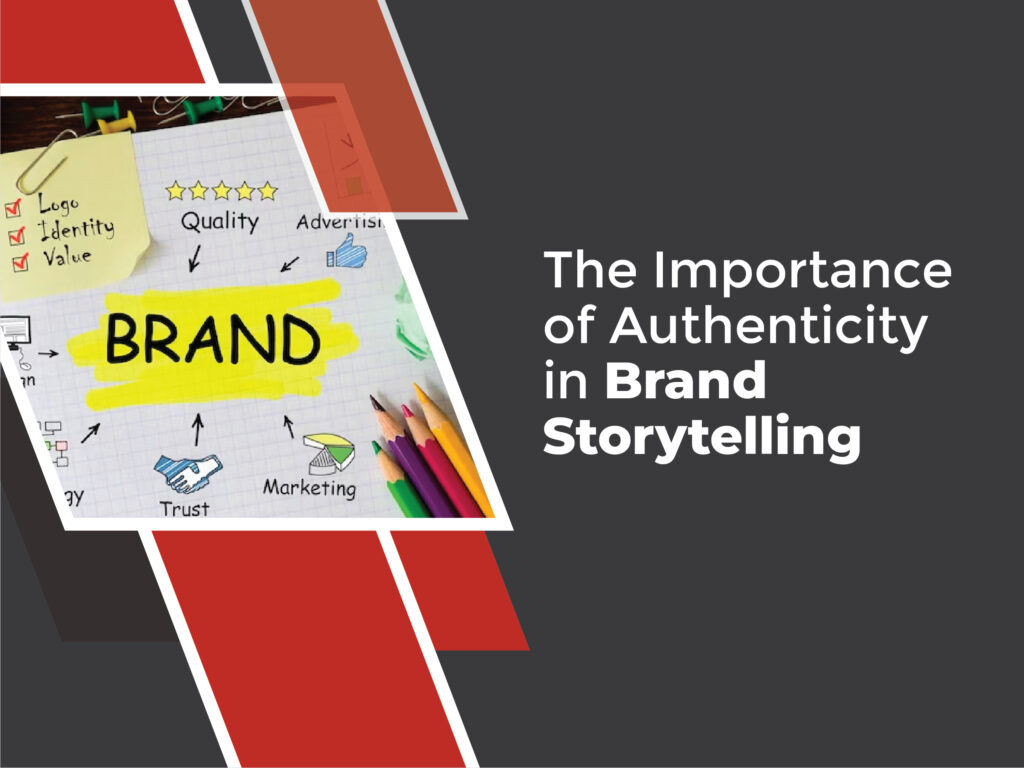
Authenticity is crucial in brand storytelling. Customers can quickly identify fabricated or artificial narratives, leading to a lack of trust and skepticism towards the brand. Authenticity is the key to creating a genuine connection with the audience, leading to greater engagement, loyalty, and advocacy. Here are some reasons why authenticity is crucial in brand storytelling.
- Authenticity Builds Trust
Authenticity builds trust between the brand and the audience. Customers value honesty and transparency, and by sharing real stories, brands can create a sense of trust with the audience. Authenticity is crucial in building a long-term relationship between the brand and the audience, leading to higher engagement with customers.
- Authenticity Defines a Brand’s Identity
Authenticity defines the brand’s identity. By sharing real experiences and narratives, brands can establish their unique identity, leading to better differentiation from the competition. Authentic storytelling helps establish the brand’s messaging, values, and culture, leading to a deeper connection with the audience.
- Authenticity Increases Relatability
Authenticity makes a brand more relatable. By sharing real stories, brands can connect with customers on a personal level, leading to greater relatability and emotional connection. Authenticity makes brand messaging more tangible and relatable, leading to a more effective emotional response from the audience.
- Authenticity Creates Lasting Impressions
Authenticity creates lasting impressions. By sharing real stories, brands can establish a powerful and lasting impression on the audience, leading to better recall and long-term engagement. Authenticity is crucial in creating a memorable and impactful narrative, leading to better customer retention and loyalty.
How Storytelling Marketing Can Improve Customer Engagement
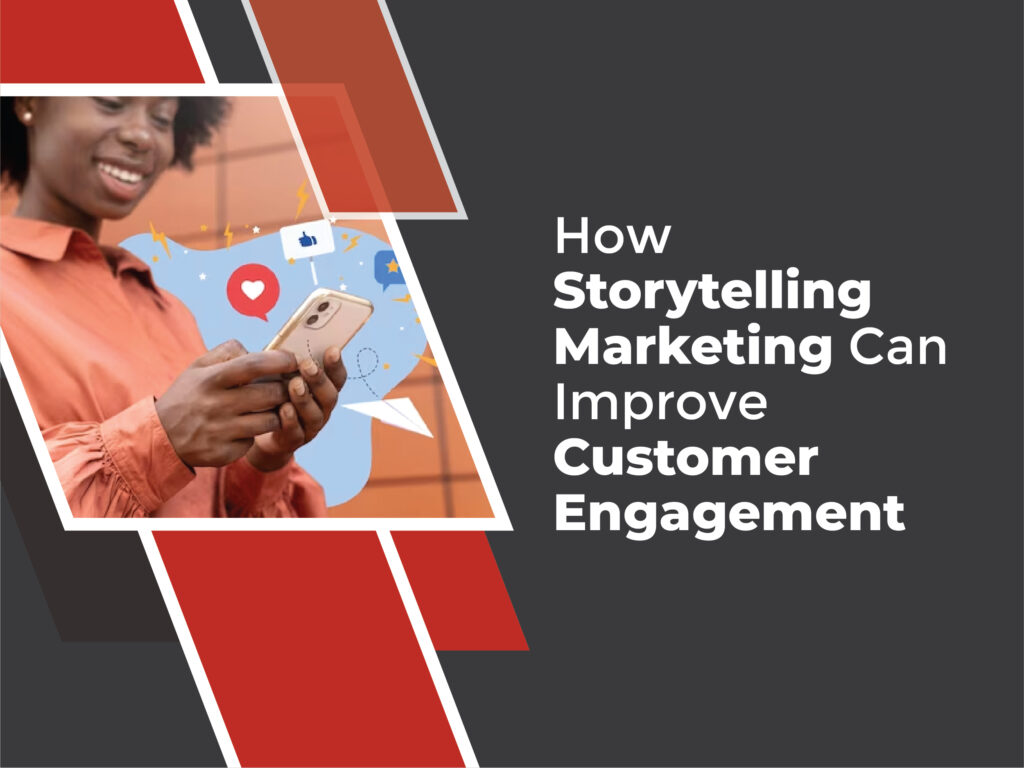
For a storytelling marketing campaign to succeed in engaging customers, the marketing approach must be well thought out, and with a specific goal in mind.
- Develop a Story with Emotional Resonance
To engage customers, brands must create a story that resonates emotionally with their audience. A well-designed story can spell the difference between a brand being memorable and being forgotten. Customers may forget facts and figures, but they will remember how a story made them feel.
To achieve an emotional resonance, it is essential for brands to consider their target audience; what are their pain points, aspirations and motivations? Understanding these factors can help brands create a story that is both relatable and emotionally resonant. A good example is the ‘Dove Real Beauty’ campaign, which aimed to challenge conventional beauty standards and promote acceptance of different body types. By telling stories of real people with insecurities about their body and how they overcame them, the audience was endeared to the brand’s mission of promoting body positivity.
- Choose the Best Storytelling Format
Storytelling marketing can employ different formats to engage its audience effectively. Brands can choose to use videos, podcasts, blogs, social media, or any other creative format that will best fit the story being told.
For instance, Instagram offers a unique platform to tell stories through visual images that can capture a brand’s unique personality or culture. By using stories, brands can disclose narratives that portray their brand travel journeys, team bonding, and behind-the-scenes snippets. Using the right storytelling format is critical to achieving the intended goals of the marketing campaign and engaging target customers effectively.
- Create a Call-to-Action (CTA)
After successfully engaging customers through storytelling marketing, brands must include a CTA to nudge the readers to take the next action. The action could be sharing the story on their social media pages, subscribing to newsletters on the brand’s website, or engaging in a conversation.
Measuring the Success of a Storytelling Marketing Campaign

While storytelling marketing can have many benefits, it’s important to measure the success of your campaign. Here are some key metrics to consider when evaluating the effectiveness of your storytelling marketing campaign:
- Engagement Metrics: Engagement metrics measure how your audience is interacting with your content, such as likes, shares, comments, and click-through rates. By tracking these metrics, you can evaluate how well your story resonates with your audience and adjust your campaign accordingly.
- Conversion Metrics: Conversion metrics measure how many of your audience members take a specific action as a result of your campaign, such as making a purchase or signing up for a newsletter. By tracking these metrics, you can evaluate the effectiveness of your campaign in driving business outcomes and adjust your campaign accordingly.
- Brand Awareness Metrics: Brand awareness metrics measure how much your audience remembers and recognizes your brand as a result of your campaign. These metrics could include surveys, Google searches, and social media mentions. By tracking these metrics, you can evaluate how well your campaign is increasing brand awareness and adjust your campaign accordingly.
- Return on Investment (ROI): ROI measures the return on investment of your campaign, such as the revenue generated versus the cost of the campaign. By tracking this metric, you can evaluate the effectiveness of your campaign in driving business outcomes and adjust your campaign accordingly.
Conclusion
Storytelling marketing has become a necessary tool for any brand seeking to succeed in today’s digital age. By humanizing the brand’s identity, conveying its message in relatable and engaging ways, and creating an emotional connection with the audience, storytelling marketing is a powerful tool in building trust and establishing brand loyalty. Coupled with increasing social media market space where a brand’s ability to present themselves is amplified, storytelling marketing ensures success for modern brands. While stories will continue to evolve, they remain at the core of human nature, emotions, and relationships. It is, therefore, safe to say that storytelling marketing is not just a trend but an indispensable marketing strategy in the modern business ecosystem.


